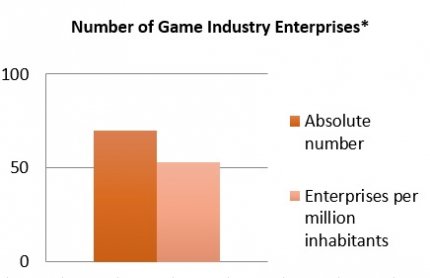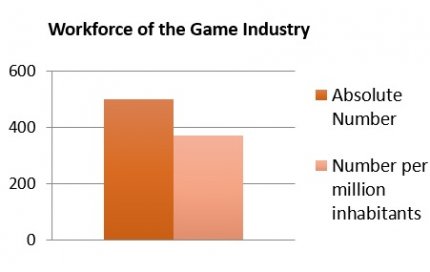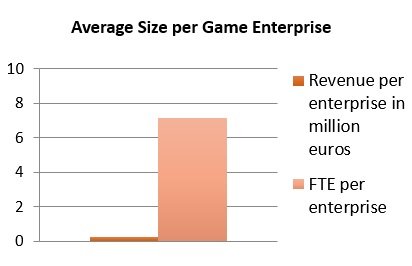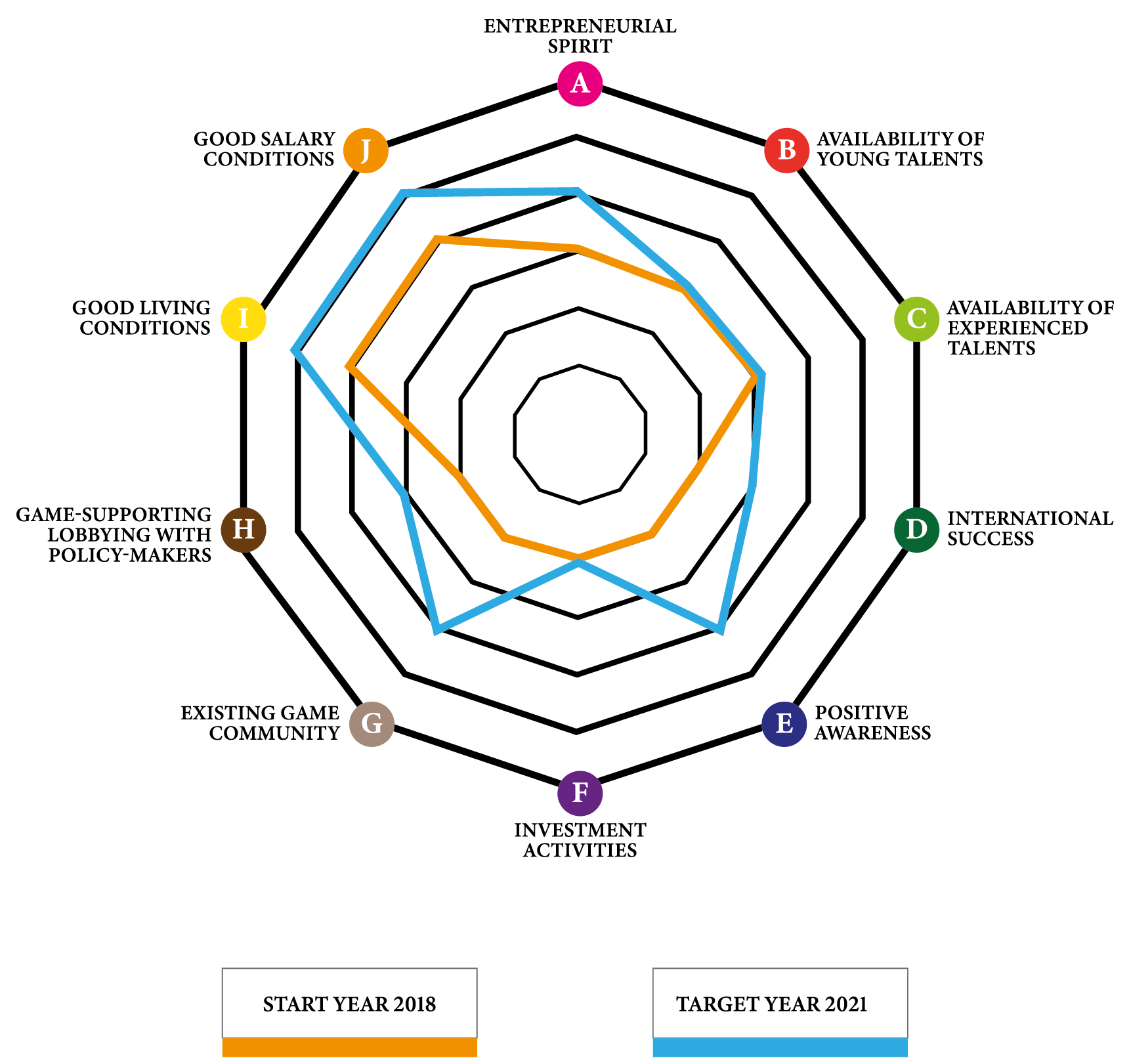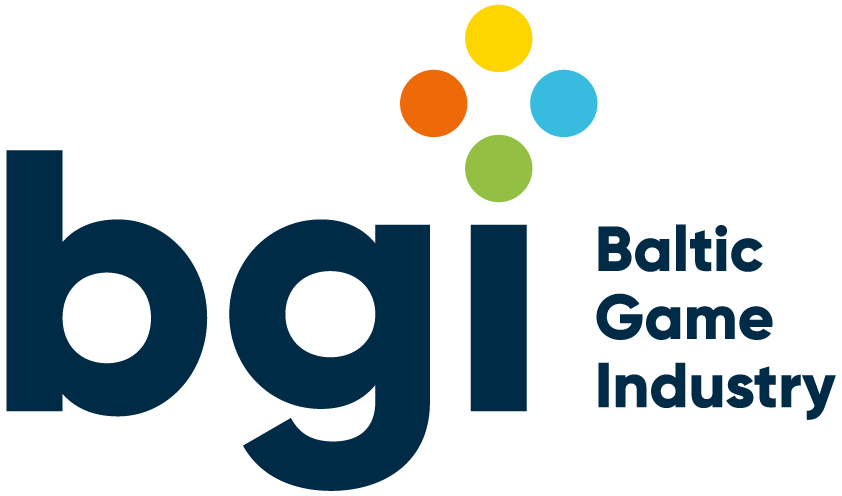Regional Game Industry Profile Estonia
As is the case for the other two Baltic States, Estonia’s game industry is a fairly young and emerging industry. This also accounts for the fact that there are not yet detailed statistics on the game industry. An estimate of 70 companies* places the industry size in the lower range of the whole BSR. In relation to population, this means 53 per 1m inhabitants (population of Estonia in 2020 was 1.327 million). Most of the companies have started after 2010, and since 2015 the industry has grown steadily. The sector employs around 500 people resulting in over 370 employees per million inhabitants. The largest pool of companies consists of small teams with up to 5 employees (80% of the whole sector). The revenue of 16.7 m € for the whole industry sector gives an average of 240 000 € per firm.
The sector has gained traction after the success of Creative Mobile (est. 2010, focusing on mobile games with more than 350 million downloads in drag racing games) and the establishment of Gamefounders in 2012, an international accelerator of game studios set up by Enterprise Estonia in close cooperation with private investors. One of the recent success stories started in 2019 after ZA/UM studio published Disco Elysium, an RPG game for PC, that was well received by the gaming community and won several international awards.
Recently, there has also been a considerable increase in activities in the national game landscape, such as game jams, meet-ups, etc., an indicator for a growing and lively business sector.
Local universities are opening game related courses. University of Tartu (UT) has the Computer Graphics and VR Lab, offering topics for theses and real projects from companies to students as well as mapping of courses available at UT for students interested in game development. Two universities have already started providing Master-level education for aspiring game developers: e.g. Digital Learning Games at Tallinn University, focusing on game and interaction design and a summer school for designing serious games and 3-year Game Design and Development at a private university, Estonian Entrepreneurship University of Applied Sciences.
The community of game developers is led by IGDA Estonia, organising monthly meetups, yearly and company missions to sectoral fairs. Two additional NGOs have been established in 2017 – APT Game Generator (in Tartu) and Gamelab (in Tallinn).
Source: Data from IGDA Estonia (2017), own chart
Source: Data from IGDA Estonia (2017), own chart
Source: Own deduction
| Interest/lobby associations | 3 (IGDA Estonia, GameLab, APT GameGenerator) |
| Incubators with full focus on games | 0 |
| Technical incubators that could in principle harbour game start-ups | 4 (Creative Incubators in Tartu and Tallinn, S2B Incubator at Tartu Science Park, Tehnopol Startup Incubator) |
| Revenue | 2020: 120 m € (estimation), 2016: 92 m € (source: IGDA Estonia and Central Commercial Register of Estonia) |
______________________
Status: 2020
- Central Commercial Register of Estonia
- IGDA Estonia – Estonian Chapter of the International Game Developers Association
- University of Tartu Computer Graphics and Virtual Reality Lab
- Tallinn University School of Digital Technologies
- Summer school for designing serious games
- Estonian Entrepreneurship University of Applied Sciences
- Personal communication/expert interviews
